Sleep And Tiredness
What is the relationship between sleep and tiredness, how much sleep should you aim for and what is quality of sleep? Also, find out more about good sleep practices and common sleep problems and disorders.
.jpg)
Are you sleep deprived?
To find out if you’re sleep deprived, answer the following questions:
Do you need an alarm clock to wake you up in the morning?
Do you feel tired in the mornings and have troubles getting out of bed?
Do you hit the snooze button again and again… until you absolutely must get up?
Are you often irritable and cranky?
Do you feel drowsy when reading, sitting behind a computer, or driving?
Do you fall asleep while watching TV?
Are you looking forward to weekends, because you know you will get more sleep?
Do you have a hard time staying concentrated and focused on your work for long periods of time?
Do you believe that you wouldn’t be able to function properly without your morning cup of coffee?
If you answered ‘yes’ to at least 2 of the above questions, then you’re probably suffering from some kind of sleep deprivation.
If you’re sleep deprived, here are the 3 things you can do…
- Sleep more,
- Raise the quality of your sleep,
- Sleep accordingly to your unique sleep cycles
Sleeping more or sleeping better - the quality vs. the quantity of sleep
A lot of people who are sleep deprived are blaming it all on quantity of sleep. They believe that everything would be OK if only they’d get a little more sleep. In some cases, they are absolutely right. But not always…
What you should understand is that it’s not just how much sleep you’re getting that’s important. It’show muchquality sleepyou get. So...
If you sleep for 12 hours per night, but your sleep is of poor quality, you will feel tired.
If you sleep for just 2 hours per night, you will feel tired, regardless of the quality of your sleep.
The relationship between sleep and tiredness
There is a deep relationship between sleep and tiredness. If you are suffering from tiredness on a long-term basis, you should aim to improve your sleep. In fact, you should do this anyway because sleeping well is a positive way of improving your general health and enhancing the response of your immune system.
Too little sleep and too little ‘quality sleep’ can certainly aggravate adrenal exhaustion, which is one of the causes of fatigue. However, adrenal exhaustion and stress can cause sleeplessness and poor quality sleep. You may have to break the cycle of stress, sleeplessness and tiredness in a number of ways. In order to deal with stress you could consider the following:
- Identify your stressors and make wise lifestyle choices to reduce your stress e.g. downsizing
- Take up relaxation techniques e.g. meditation, progressive muscle relaxation
- Get gentle regular exercise e.g. walking, swimming
- Eat small regular meals, with plenty of high quality nutrition.
[Please seeDealing with stress and tirednessfor more details about the above.]
If you are not sleeping well, then you may need to take appropriate action depending on your sleep issue. Some people find it difficult to fall asleep, others find it difficult to stay asleep and others find it difficult to wake up. Each of these conditions has different causes and remedies.
For more details please see:
- Sleep Problems I:Falling asleep
- Sleep Problems II:Waking up during the night
- Sleep Problems III:Troubles with waking up in the morning
It’s also useful to understand the different stages and cycles of sleep. We actually cycle through 5 different sleep phrases, lasting between 60 and 90 minutes every night. The cycles are repeated a number of times. Only in one of the stages, we enter the deepest form of sleep, REM (Rapid Eye Movement Sleep), in which we both dream and renew the physical cells of our bodies. This phase comes last in the cycle and is in some ways the most important phase. If these sleep stages or cycles are disturbed in any way, or interrupted and left unfinished, we are liable to wake up with a groggy or ‘hangover’ type feeling.
How much sleep should you aim for and what is quality of sleep?
It is difficult to specify a required length of sleep per night as people vary in their needs. Most people need between 8 and 9 hours, but there are individual variations. Without a certain minimum amount of sleep you won’t get enough REM and deep sleep, which come towards the end of the sleep cycle.
Even more important than length of sleep is quality of sleep. This means you should aim not to break your sleep cycles with alarm clocks and snooze buttons if possible.
The best way to create quality of sleep is to go to sleep and aim to wake up at the same time each day. This way you train your body to wake up naturally, at the end of a sleep cycle. [Please seeStages and cycles of sleepfor more details.]
Good sleep practices
As well as practicing relaxation, taking exercise and reducing stress, there is much that you can do to establish good sleep practices for yourself. Try to:
Arrange your bed and bedroom for sleep
Make sure you have a good mattress (change your mattress at least every ten years), and that your bedding is light and comfortable. Make the room as dark (with black-out drapes and blinds) as possible. Sound proof your bedroom if you can with double glazing or wear ear plugs. Remove as many electrical appliances as possible, including televisions and computers. Keep your bedroom for sexual activity and sleep only. [Please seeHow to arrange your bedroom for optimum sleepfor more details.]
Eat and drink wisely
Try not to take caffeine after 4 pm. Remember that caffeine is present in some foods and drinks (e.g. colas) as well as in coffee. Avoid alcohol if possible. Take light meals in the evening, and aim to include some tryptophan (found in tuna, turkey, lentils, soya beans and milk) so as to make you sleepy. Potassium rich foods (e.g. bananas) are also very helpful in inducing sleepiness.
[Please seeStimulants and tirednessandHow to deal with stress and fatiguefor more details.]
Choose herbal remedies rather than prescription medications
Prescription medications may be needed in the short term but should not be used longer than absolutely necessary because they can be addictive and may actually make the problem of fatigue worse. There are a number of herbal remedies and natural substances that can help you sleep. Some of them need a bit of time to work, so be prepared to be patient.
Please, seeFalling asleep and herbal remedies for better sleep.
What are common sleep problems and disorders?
As well as insomnia (inability to sleep or to sleep well), there are a number of conditions which commonly cause sleep disorders. They include:
- SDB (Sleep Disordered Breathing) – this includes both UARS and Sleep Apnea and can manifest from mild to severe.
- UARS (Upper Airway Resistance Syndrome) – this is often misdiagnosed as chronic fatigue syndrome and it tends to disrupt sleep through the night because it makes breathing more effortful.
- Sleep Apnea – this condition means that you stop breathing repeatedly throughout the night, often almost waking you up which disturbs your sleep cycles.
- Narcolepsy – is characterized by excessive sleepiness during the day, and difficulty sleeping at night.
- RLS (Repetitive Leg Syndrome) – this causes people to continually move their legs at night, and disturbs sleep.


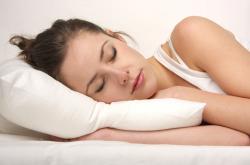
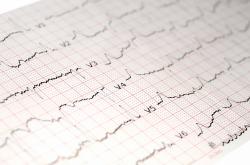
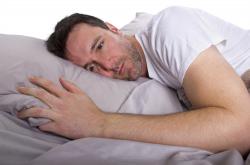

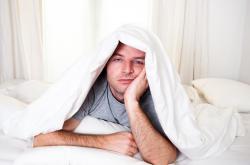
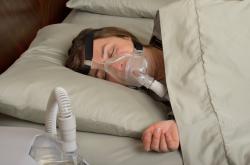









Leave a comment